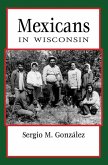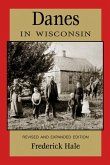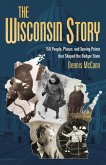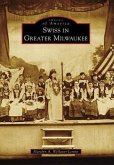Between 1840 and 1890, many Welsh looked to Wisconsin for relief where they could purchase inexpensive, productive land. With large Welsh landowners controlling most of the arable land in Wales and Corn Laws, which prohibited importation of cheap food, domestic food prices increased dramatically and left the typical tenant-farming family with fields full of grain but empty cupboards. Once in Wisconsin, the newcomers kept to themselves, maintained their native language and national traditions and worshipped together in close-knit communities.
Hinweis: Dieser Artikel kann nur an eine deutsche Lieferadresse ausgeliefert werden.
Hinweis: Dieser Artikel kann nur an eine deutsche Lieferadresse ausgeliefert werden.







